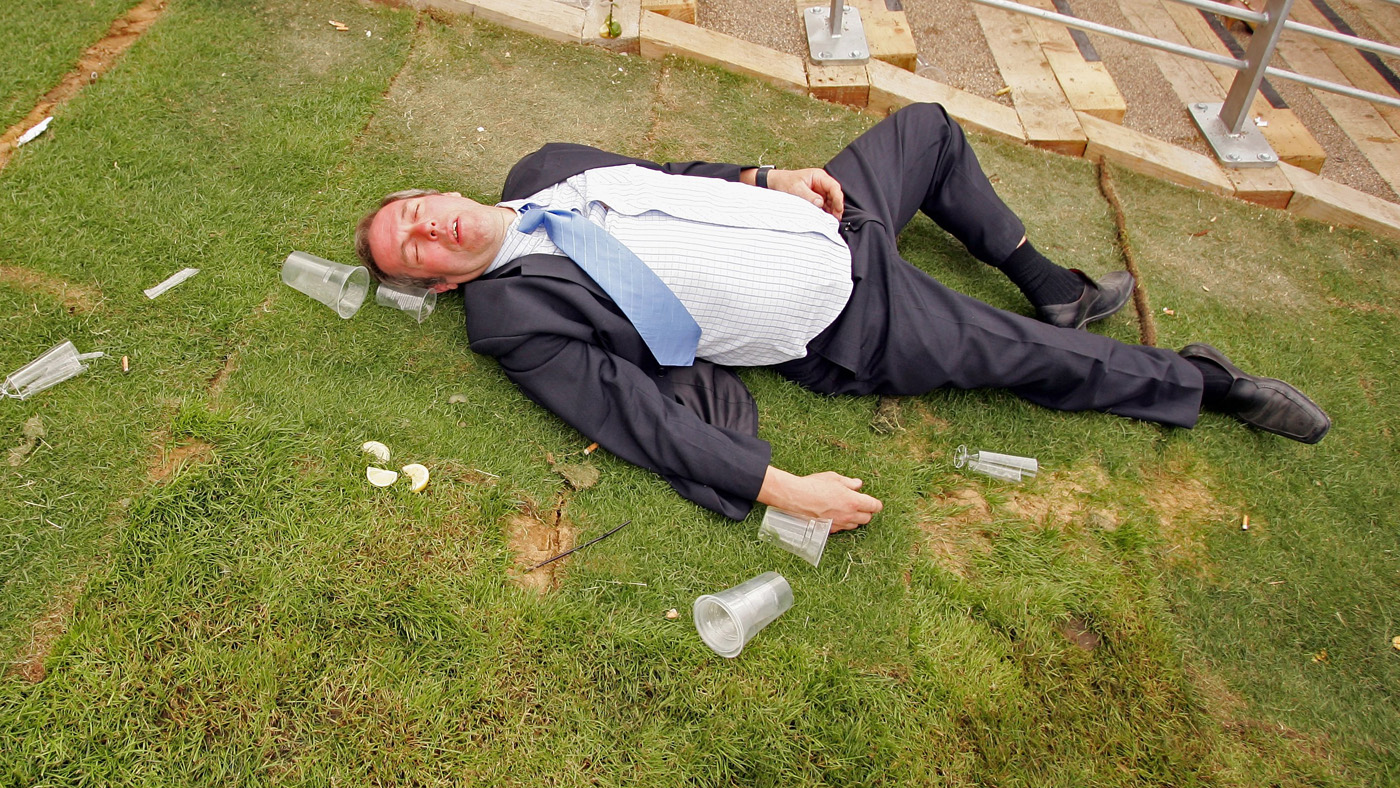Five of the best reasons for calling in sick
From obstructive cows to devastating darts, wannabe absentees can be creative

A free daily email with the biggest news stories of the day – and the best features from TheWeek.com
You are now subscribed
Your newsletter sign-up was successful
If you've been out late on a "school night" and are thinking of taking the day off work, Lee Biggins, founder and managing director of CV-Library, says the best policy for calling in sick is honesty.
Biggins told the Daily Telegraph that it was obviously for the best not to take unnecessary days off, but that "if you're honest and open with them... you never know, they may grant you a bit of time out if you really do need it."
That's all well and good, but the reality is very few are likely to be honest if their reasons are self-inflicted or fall short of genuine illness.
The Week
Escape your echo chamber. Get the facts behind the news, plus analysis from multiple perspectives.

Sign up for The Week's Free Newsletters
From our morning news briefing to a weekly Good News Newsletter, get the best of The Week delivered directly to your inbox.
From our morning news briefing to a weekly Good News Newsletter, get the best of The Week delivered directly to your inbox.
CV-Library conducted a survey and found 80 per cent of workers have taken at least one day off in the past year, with many - including 65 per cent of 55-64 year olds - saying they have taken time off for sleep deprivation or lack of energy.
But often the excuses given to employers have been very different. Here are five of the most eye-catching reasons employees have asked their bosses for a day off work:
1. "There are cows in my garden so I can't get to work"
2. "My hamster is sick and needs to go to the vet"
A free daily email with the biggest news stories of the day – and the best features from TheWeek.com
3. "My boyfriend changed his relationship status on Facebook to single"
4. "I lost a darts tournament last night and I am too traumatised to come in"
5. "I have blisters from wearing new shoes on Saturday night"
Biggins added: "While it might seem like a good idea at the time, many workers are feeling the guilt, recognising that their decisions have a wider impact on their team and workload.”
-
 Political cartoons for February 19
Political cartoons for February 19Cartoons Thursday’s political cartoons include a suspicious package, a piece of the cake, and more
-
 The Gallivant: style and charm steps from Camber Sands
The Gallivant: style and charm steps from Camber SandsThe Week Recommends Nestled behind the dunes, this luxury hotel is a great place to hunker down and get cosy
-
 The President’s Cake: ‘sweet tragedy’ about a little girl on a baking mission in Iraq
The President’s Cake: ‘sweet tragedy’ about a little girl on a baking mission in IraqThe Week Recommends Charming debut from Hasan Hadi is filled with ‘vivid characters’
-
 Tariffs have American whiskey distillers on the rocks
Tariffs have American whiskey distillers on the rocksIn the Spotlight Jim Beam is the latest brand to feel the pain
-
 Is this the end of the big night out?
Is this the end of the big night out?Talking Point Bar closures and Gen Z teetotallers threaten 'extinction' for 'messy nights on the town'
-
 Dogs barred from all Wetherspoons pubs
Dogs barred from all Wetherspoons pubsSpeed Read The UK’s biggest pub chain has said the animals are ‘unpredictable’ and frighten young children
-
 CO2 shortage: crumpets the latest British staple to be affected
CO2 shortage: crumpets the latest British staple to be affectedSpeed Read Warburtons becomes another casualty of the carbonation crisis
-
 Minimum alcohol pricing: has Scottish government been scuppered?
Minimum alcohol pricing: has Scottish government been scuppered?In Depth European court rules measure is illegal if same benefit can be derived from tax rises